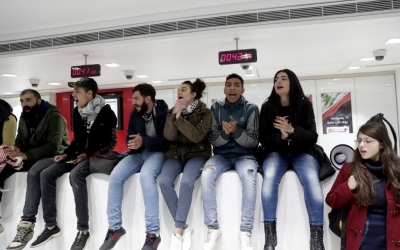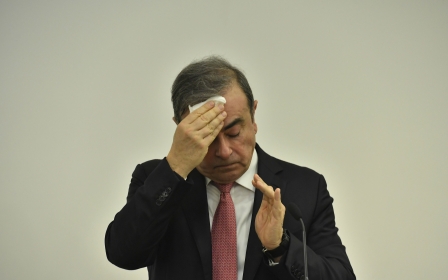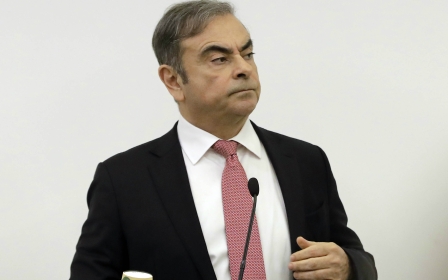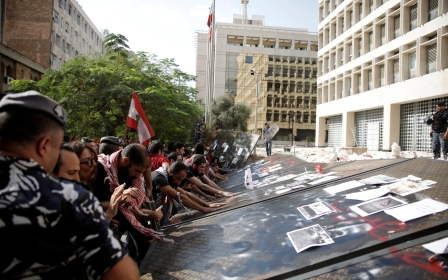Lebanon wakes up to trashed banks and UN rebuke of its failing politicians
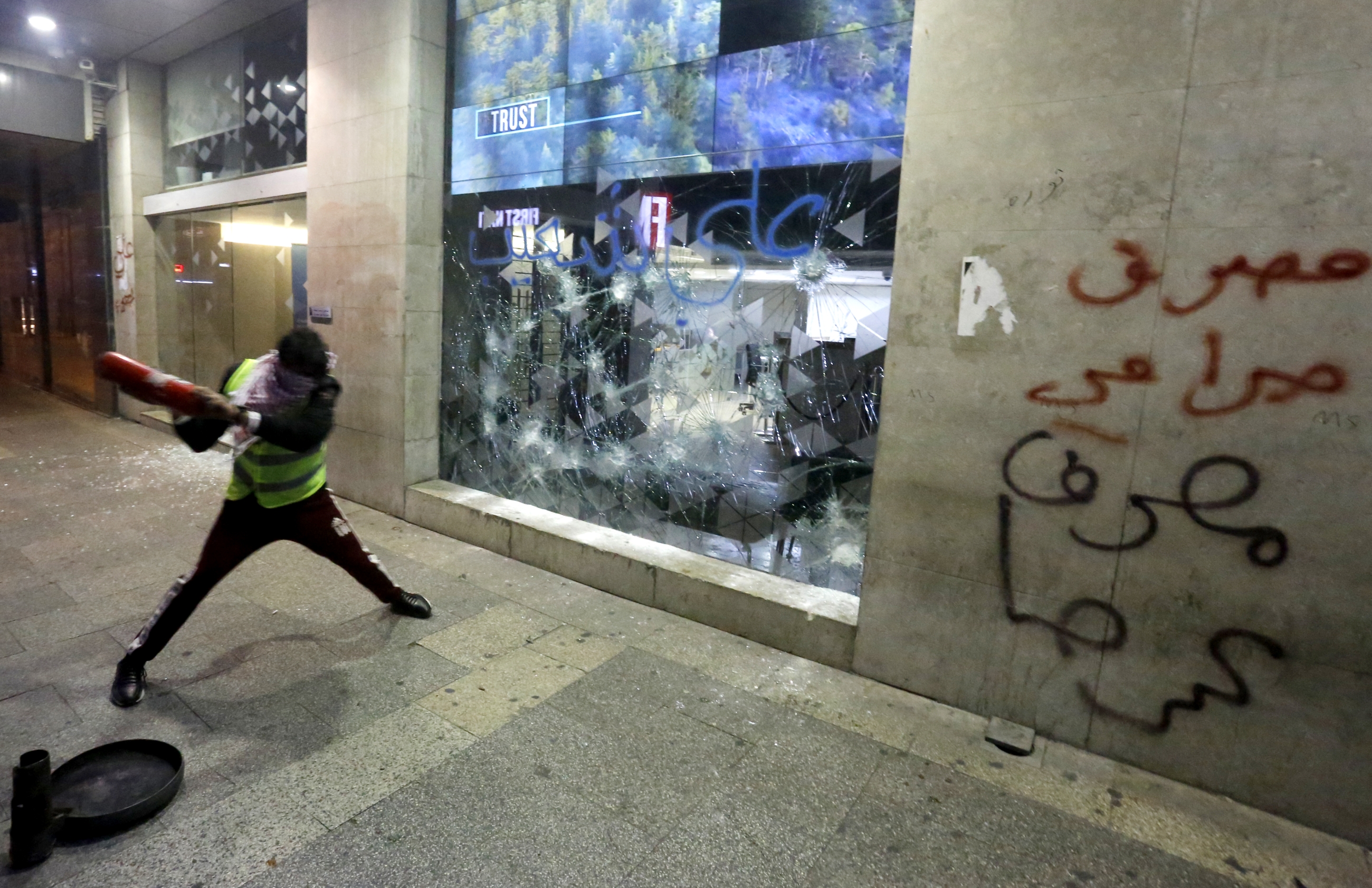
A United Nations official has blamed Lebanon's political class for the country's deepening economic crisis, the day after protesters vented their anger on banks in the capital Beirut.
According to the Red Cross, at least 37 people were injured overnight as protesters smashed windows of bank branches and scuffled with security forces in Beirut's Hamra district overnight.
By Wednesday morning almost every branch was left with smashed display windows, graffiti-covered walls and destroyed ATMs.
Beirut police said 59 people were detained, making it one of the largest waves of arrests since Lebanon's anti-government protest movement began on 17 October.
New MEE newsletter: Jerusalem Dispatch
Sign up to get the latest insights and analysis on Israel-Palestine, alongside Turkey Unpacked and other MEE newsletters
Heavily indebted Lebanon has been in political turmoil since protests broke out over politicians' mismanagement and corruption.
Saad Hariri resigned as prime minister two weeks into the demonstrations, but political rivalries have obstructed a deal on a new cabinet even as the crisis hits ordinary people.
The Lebanese pound has lost around a half of its value while anger at banking controls have led to rows and violence in branches.
On Wednesday, Jan Kubis, UN special coordinator for Lebanon, rebuked the country's ruling elite for failing to agree a government or rescue plan for the country.
"Another day of confusion around the formation of a government, amidst the increasingly angry protests and free-falling economy," he wrote on Twitter.
"Politicians, don't blame the people, blame yourselves for this dangerous chaos."
Kubis appeared to give credit to central bank governor Riad Salameh, saying he had sought "extraordinary powers to at least somehow manage the economy while those responsible watch it collapsing".
"Incredible," he wrote.
Salameh asked for extra powers last week, saying he wanted to standardise the banking controls.
Many Lebanese see Salameh, who has presided over Lebanon's economic policy for decades, as one of the chief architects of its precarious and rotten system. The central bank was one of protesters' chief targets on Tuesday.
Dollar cap anger
Banks have since September arbitrarily capped the amount of dollars customers can withdraw or transfer abroad, in a country where the greenback and the Lebanese pound are used interchangeably.
Although no formal policy is in place, most lenders have limited withdrawals to around $1,000 a month, while others have imposed tighter curbs.
Sparked by a grinding liquidity crunch, the controls are increasingly forcing depositors to deal in the plummeting pound, amounting to what experts are calling a de facto banking "hair cut".
The local currency has lost over a third of its value against the dollar on the parallel market, plunging to almost 2,500 against the US dollar over the past week.
The official rate was pegged at 1,507 Lebanese pounds to the greenback in 1997.
Demonstrators accuse banks of holding their deposits hostage while allowing politicians, senior civil servants and bank owners to transfer funds abroad.
Banks have as a result transformed into arenas of conflict, where shouting and tears abound, as depositors haggle tellers to release their money.
The banking association condemned the attacks as the work of a "mercenary mob" and not the "real revolutionaries of Lebanon" seeking reform.
It condemned the "severe and irresponsible tardiness in forming a new government", saying this made it look like banks were responsible for deteriorating conditions.
Middle East Eye delivers independent and unrivalled coverage and analysis of the Middle East, North Africa and beyond. To learn more about republishing this content and the associated fees, please fill out this form. More about MEE can be found here.


